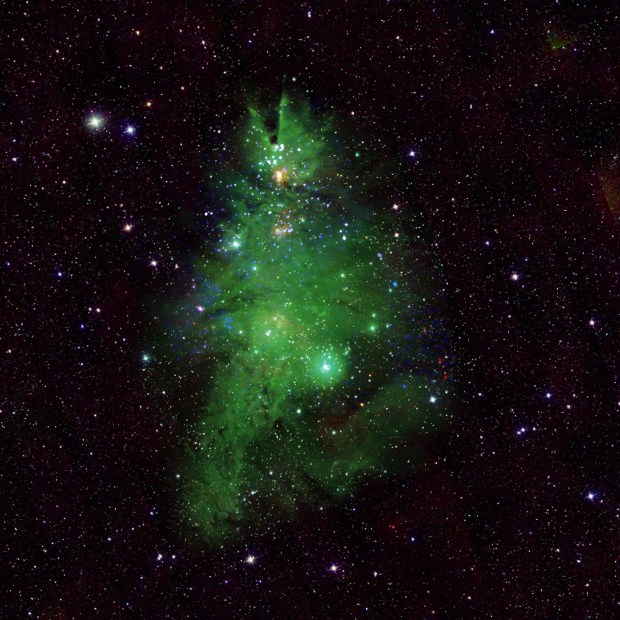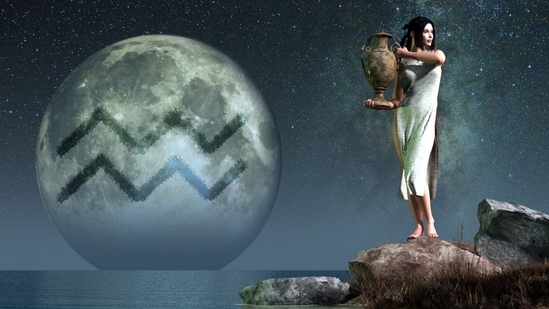It seems that black holes might not contain singularities in any case because of an error in the mathematics written 60 years ago by Hawking and Penrose. Penrose is still alive so I wonder what he has to say about this.
-
Welcome! The TrekBBS is the number one place to chat about Star Trek with like-minded fans.
If you are not already a member then please register an account and join in the discussion!
You are using an out of date browser. It may not display this or other websites correctly.
You should upgrade or use an alternative browser.
You should upgrade or use an alternative browser.
The Nature of the Universe, Time Travel and More...
- Thread starter Will The Serious
- Start date
Merry Christmas!
Happy Hanukkah!
Happy New year!
Happy Hanukkah!
Happy New year!

https://www.astronomy.com/observing/merry-christmas-from-the-cosmos/
And an Ecstatic Great Year (Aquarius).

-Will
I see Aquarius has has a sex change, but as he was supposed to be Ganymede, perhaps that's some thing that Jupiter might arrange?
I don’t believe in astrology.
“The fault is not in the stars, but in ourselves.”
“The fault is not in the stars, but in ourselves.”
Perhapse, as the cup bearer of Zeus, Ganymede, like Siproites, had seen Artemis bathing while bringing her bathwater.I see Aquarius has has a sex change, but as he was supposed to be Ganymede, perhaps that's some thing that Jupiter might arrange?
-Will
I took a class in college called, Psychology and Literature. In that class, we read King Lear, among other books. The most interesting contrast we drew was between the king and duke Gloucester. The king's rant during the storm demonstrates how the king believed the forces of the Universe can be made to bow to his will, while Gloucester laments that he is but a vessel moved only by the whims and currents of Nature.I don’t believe in astrology.
“The fault is not in the stars, but in ourselves.”
The Zodiac, like the Greek gods, are incarnations of nature and human psychology to some, while to others, they are simply metaphors for the forces and environment that surround us. It is up to us to make use of those forces, or give in and be ruled by them.
-Will
Last edited:
Yeah, Lear, unlike the real Cnut Sweynsson and the waves, seemed not to be demonstrating that he was aught but a man. Geoffrey of Monmouth's original tale of the 8th century BCE British King Leir is unlikely to be based on a real person.
Of course, other civilisations didn't have the the same constellations or asterisms as the Graeco-Roman ones, which demonstrates the human propensity for seeing patterns where there are none.
Figures in the Sky (visualcinnamon.com)
Of course, other civilisations didn't have the the same constellations or asterisms as the Graeco-Roman ones, which demonstrates the human propensity for seeing patterns where there are none.
Figures in the Sky (visualcinnamon.com)
Last edited:
OT
I have always thought the scene in Macbeth where the character keeps seeing the dagger as a hearth scene.
The heat-oppressed brow imagines a dagger in place of a poker...stabs at the fire...the poker breaks leaving a knife-like shard:
"I see thee yet."
That works a bit better visually to me...camera behind the flames...some CGI distortion.
Just having a person on stage reaching out into empty air never sat well with me.
Stabbing at the fire?
Maybe a tad more evocative.
I have always thought the scene in Macbeth where the character keeps seeing the dagger as a hearth scene.
The heat-oppressed brow imagines a dagger in place of a poker...stabs at the fire...the poker breaks leaving a knife-like shard:
"I see thee yet."
That works a bit better visually to me...camera behind the flames...some CGI distortion.
Just having a person on stage reaching out into empty air never sat well with me.
Stabbing at the fire?
Maybe a tad more evocative.
Perhapse that worked better in the age where people saw witches everywhere.Just having a person on stage reaching out into empty air never sat well with me.
Stabbing at the fire?
-Will
Hoping to impress King James I/VI but failing.
I was curious about the analogy einstein drew between gravity and an elevator, so was reading about Leibniz's Indistinguishability theory.
"As Leibniz put it: “If an ontological theory implies the existence of two scenarios that are empirically indistinguishable in principle but ontologically distinct ... then the ontological theory should be rejected and replaced with one relative to which the two scenarios are ontologically identical.” "
https://www.nature.com/articles/s41...f,two scenarios are ontologically identical.”
What I was wondering, was about the idea of gravity not being a force, but only an acceleration. To me, that is where the analogy breaks down, because the elevator must have a force to cause the acceleration.
-Will
"As Leibniz put it: “If an ontological theory implies the existence of two scenarios that are empirically indistinguishable in principle but ontologically distinct ... then the ontological theory should be rejected and replaced with one relative to which the two scenarios are ontologically identical.” "
https://www.nature.com/articles/s41...f,two scenarios are ontologically identical.”
What I was wondering, was about the idea of gravity not being a force, but only an acceleration. To me, that is where the analogy breaks down, because the elevator must have a force to cause the acceleration.
-Will
That's the essence of the equivalence principle between gravitational mass and inertial mass.
Equivalence principle - Wikipedia
...and yes, force equals (inertial) mass times acceleration, although everything tends to be formulated as Lagrangians in modern physics.
Lagrangian mechanics - Wikipedia
The following video about the origin of the gravitational constant is very illuminating.
Equivalence principle - Wikipedia
...and yes, force equals (inertial) mass times acceleration, although everything tends to be formulated as Lagrangians in modern physics.
Lagrangian mechanics - Wikipedia
The following video about the origin of the gravitational constant is very illuminating.
Not sure if this has been posted anytime in the last year. Also not sure if I can say I believe it or not, but this guy brings up a lot of points and coincidences.
Then there's the 11,000-12,000 years of telling, retelling and reinterpreting the stories/lore(?). I find it extremely interesting either way.
Then there's the 11,000-12,000 years of telling, retelling and reinterpreting the stories/lore(?). I find it extremely interesting either way.
Perhaps it should have its own thread as it's off-topic for this one? You might also get more response in Misc.
"Nature of the universe"?Perhaps it should have its own thread as it's off-topic for this one? You might also get more response in Misc.

That's quite a stretch though, isn't it? I do think you might get more response in Misc.
Very interesting though
Similar threads
- Replies
- 3
- Views
- 3K
Contest: ENTER
June 2025 Art Challenge - Suggest Your Themes!
- Replies
- 3
- Views
- 4K
If you are not already a member then please register an account and join in the discussion!


